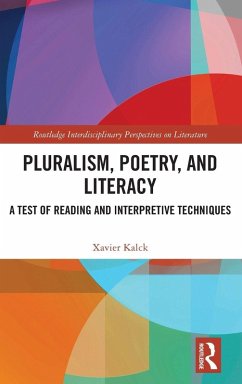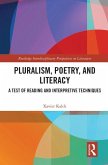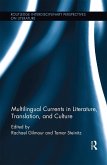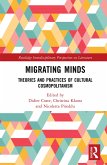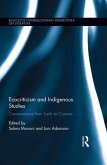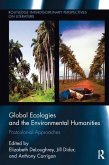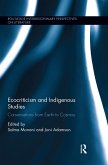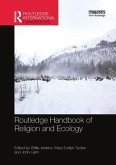Drawing from Medieval and Renaissance studies, analytic philosophy and pragmatism, Jewish studies, as well as ecocriticism and environmental humanities, this book demonstrates the consistent relationship between pluralism and literacy through the prism of poetry by confronting the history of interpretive practices with examples from American poets Robert Lax, Larry Eigner, Louis Zukofsky, Gary Snyder and Theodore Enslin. Divided into four areas of investigation-the meditative, the analytic, the diasporic and the ecological reader-it is an invitation to turn to premodern reading practices related to spiritual exercises as well as modern reading practices devoted to the critical pursuit of analytical knowledge. This study further reflects on the textual models of Jewish diaspora as another form of dialog between sacred and secular interpretive practices, before examining a final variation on this distinction by looking at the separation between contemplative and investigative perspectives on reading and writing nature.
Xavier Kalck tells us that his aim in Pluralism, Poetry and Literacy is "to make manifest and render as palpably as possible a plurality of interpretive backgrounds, which would not be limited to the role of a backdrop but would actively guide and direct the interpretation." He succeeds admirably, proposing meditative, analytic, diasporic, and ecological stances, each of which demonstrate his thesis that true literacy always leads to interpretive pluralism. Along the way, he offers us complex, devoted readings of a formidable array of modern American poets, for the test of poetry (as Louis Zukofsky would put it) is always the test of interpretation. Learned, engaged, and wonderfully generous, Kalck's book is a hermeneutical tour-de-force which speaks urgently to the ways in which we need to read today.
Norman Finkelstein, Xavier University, USA
In what may seem a surprising convocation, Plato, Horace, Augustine, Shakespeare, and Wittgenstein meet the mid-20C American poets Robert Lax, Larry Eigner, Louis Zukofsky, Gary Snyder, and Theodore Enslin. What results is a sparkling renovation of four different styles of reading-the meditative, the pragmatist, the diasporist, and the ecological. With his consummate ability to read poetry in relationship to philosophy, Xavier Kalck crafts one of the most consequential works of poetics to appear in our time.
Stephen Fredman, University of Notre Dame, USA
It's not often that poetry criticism gifts us with a persuasively original mode of interpretation. Xavier Kalck's deeply thoughtful investigation takes us behind the scenes of actual reading, reaching back to four different sacred and philosophical traditions of long standing to show how they continue to offer detailed guidance to distinctive practices of reading. He tests out each stance in elegantly reasoned discussion of the work of a single poet, reminding us why we value journeys into the hinterland of poems, and how this connects us to past and future.
Peter Middleton, University of Southampton, UK.
Norman Finkelstein, Xavier University, USA
In what may seem a surprising convocation, Plato, Horace, Augustine, Shakespeare, and Wittgenstein meet the mid-20C American poets Robert Lax, Larry Eigner, Louis Zukofsky, Gary Snyder, and Theodore Enslin. What results is a sparkling renovation of four different styles of reading-the meditative, the pragmatist, the diasporist, and the ecological. With his consummate ability to read poetry in relationship to philosophy, Xavier Kalck crafts one of the most consequential works of poetics to appear in our time.
Stephen Fredman, University of Notre Dame, USA
It's not often that poetry criticism gifts us with a persuasively original mode of interpretation. Xavier Kalck's deeply thoughtful investigation takes us behind the scenes of actual reading, reaching back to four different sacred and philosophical traditions of long standing to show how they continue to offer detailed guidance to distinctive practices of reading. He tests out each stance in elegantly reasoned discussion of the work of a single poet, reminding us why we value journeys into the hinterland of poems, and how this connects us to past and future.
Peter Middleton, University of Southampton, UK.

